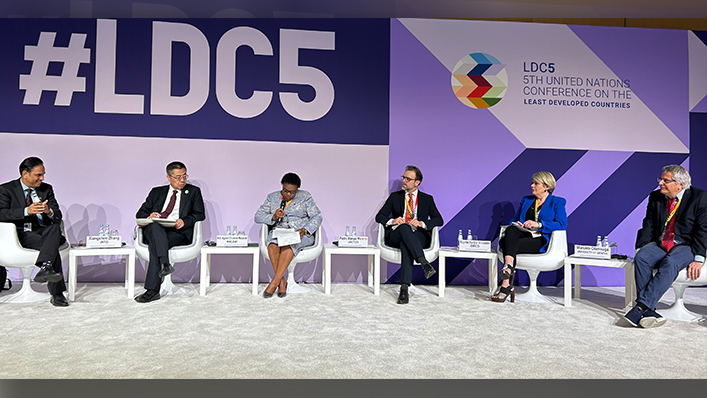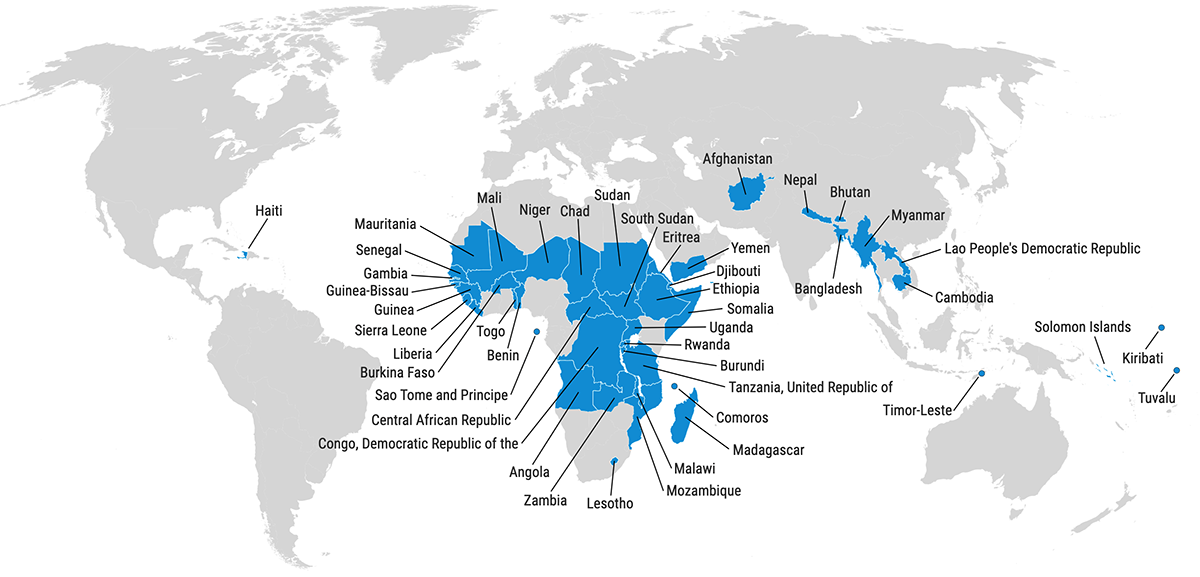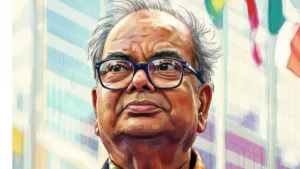Recently, at the United Nations Least Developed Countries (LDC) Summit that concluded on March 9 in Doha, Qatar, the landlocked Himalayan kingdom of Bhutan will no longer be on the list of LDCs and will become only the seventh country to graduate from the list.
Buy Prime Test Series for all Banking, SSC, Insurance & other exams
How did Bhutan get off the Least Developed Countries (LDC) list:
- Bhutan was included in the first group of LDCs in 1971. However, over the last few decades, it has made remarkable progress on a variety of socio-economic metrics.
- Bhutan first fulfilled the requirements for graduation in 2015, and then again in 2018. Bhutan was therefore scheduled to graduate in 2021.
- However, the UN viewed Bhutan’s request to match the effective graduation date with the conclusion of the nation’s 12th national development plan in 2023 as a legitimate request and thus postponed the delisting.
- Bhutan has taken a number of measures to reach this point and the results have been significant.
- Bhutan’s economy increased more than eight times in the last 20 years, from just under USD 300 million in 2000 to USD 2.53 billion in 2017, with an average annual growth rate of more than 7 per cent.
- Additionally, the percentage of people living in poverty, as determined by the amount of money they make each day, decreased from 17.8 per cent in 2003 to 1.5 per cent in 2017. In the same vein, the percentage of people living below the national poverty line decreased from 23.2 per cent in 2007 to 8.2 per cent in 2017.
- Bhutan has mostly accomplished this by increasing exports of hydropower to India, which now accounts for 20 per cent of its economy.
- The nation also established Brand Bhutan in an effort to diversify exports while acknowledging the modest size of its local market.
What is UN’s Least Developed Countries(LDCs) List:
- The UN in the 1960s began to recognise some of the most vulnerable and disadvantaged countries in the international community, considering factors such as development capacity, socio-economic parameters, lack of domestic financing, and geographical location.
- In 1971, the UN officially established the category of LDCs to attract particular support for them.
What are the benefits of graduating from LDC List?
Bhutan’s graduation from the LDC list is expected to have several benefits for the country, including increased access to international financial markets, greater foreign direct investment, and improved trade opportunities.
It is also expected to boost Bhutan’s international image and attract more tourists to the country, which is known for its natural beauty and unique culture. The graduation also highlights the importance of sustainable development and good governance in achieving economic growth and reducing poverty.





 Legendary Bengali Author Shankar Passes ...
Legendary Bengali Author Shankar Passes ...
 List of Dadasaheb Phalke Award Winners f...
List of Dadasaheb Phalke Award Winners f...
 Which Dance Form is known as the Ballad ...
Which Dance Form is known as the Ballad ...








